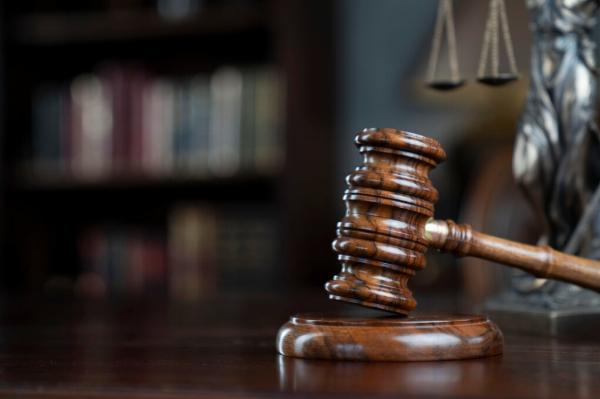What is a Record Suspension and How Does it Work

Strong 8k brings an ultra-HD IPTV experience to your living room and your pocket.
In Canada, a criminal record can have long-lasting impacts on an individual's life, affecting employment opportunities, travel possibilities, and social integration. However, the Canadian legal system offers a mechanism known as a "record suspension" to mitigate some of these challenges. This article explores what a record suspension is, its purpose and benefits, and the detailed process involved in obtaining one.
What is a Record Suspension?
A record suspension, previously known as a pardon, is a formal process through which a person’s criminal record is set aside. This does not erase the criminal record but rather separates it from other criminal records, effectively removing it from the Canadian Police Information Centre (CPIC) database. As a result, it is not disclosed during routine criminal record checks, providing the individual with a clean slate for most purposes.
Legal Framework
Record suspensions are governed by the Criminal Records Act (CRA) of Canada. The Parole Board of Canada (PBC) is the federal agency responsible for reviewing and granting record suspensions. The process is designed to recognize that individuals can and do change, allowing them to reintegrate into society more effectively after demonstrating law-abiding behavior.
Purpose of Record Suspension
The primary purpose of a record suspension is to reduce the barriers that a criminal record may impose on an individual’s ability to contribute to society. It acknowledges that people can reform and provides them with the opportunity to move past their criminal history.
Key Objectives
Rehabilitation and Reintegration: Encouraging individuals to rehabilitate and reintegrate into society by removing the stigma associated with a criminal record.
Employment Opportunities: Enhancing employment prospects by ensuring that a past criminal record does not unfairly hinder job applications.
Travel and Volunteering: Facilitating travel and volunteering opportunities by preventing a criminal record from appearing in background checks.
Social Acceptance: Promoting social acceptance and reducing discrimination against individuals with a criminal record.
Benefits of Record Suspension
Obtaining a record suspension offers several significant benefits to individuals who have demonstrated a commitment to leading a law-abiding life.
Employment
A criminal record can be a significant obstacle in securing employment. Many employers conduct background checks, and a criminal record can disqualify a candidate. A record suspension helps remove this barrier, allowing individuals to compete fairly in the job market.
Education and Professional Licensing
Certain educational programs and professional licenses require a clean criminal record. A record suspension can make it possible for individuals to pursue educational and professional opportunities that were previously inaccessible.
Travel
While a record suspension does not guarantee entry into other countries (as foreign nations have their own policies regarding criminal records), it can make it easier to obtain visas and pass background checks required for international travel.
Volunteering and Community Involvement
Many volunteer organizations require background checks. A record suspension can enable individuals to participate in community service and volunteer activities, fostering community engagement and personal fulfillment.
Peace of Mind
For many, the psychological benefit of having a record suspension is significant. It represents a formal acknowledgment of their rehabilitation and allows them to move forward without the constant reminder of past mistakes.
How Does Record Suspension Work?
The process of obtaining a record suspension in Canada involves several steps and requires adherence to specific eligibility criteria. Here’s a detailed look at how the process works.
Eligibility Criteria
To be eligible for a record suspension, an individual must meet the following criteria:
Completion of Sentence: The individual must have completed all aspects of their sentence, including imprisonment, probation, and any fines or restitution.
Waiting Period: A specific waiting period must have elapsed after the completion of the sentence. The waiting period is:
Five years for summary offenses (less serious crimes).
Ten years for indictable offenses (more serious crimes).
Good Conduct: The individual must demonstrate good conduct during the waiting period, meaning they have not been convicted of any new offenses.
Ineligibility
Certain offenses make an individual ineligible for a record suspension. These include:
Sexual offenses against minors (with some exceptions under specific conditions).
Convictions involving more than three indictable offenses with a prison sentence of two years or more for each.
The Application Process
The application process for a record suspension involves several steps:
Obtain Necessary Documents: Collect all required documents, including court documents, local police records, and a fingerprint record. The RCMP can provide a criminal record, and local police services will need to provide a police check.
Fill Out the Application Form: Complete the official record suspension application form available from the Parole Board of Canada.
Pay the Application Fee: As of the latest information, the application fee for a record suspension is CAD $644.88. This fee is subject to change, so it is advisable to check the current fee on the PBC’s website.
Submit the Application: Submit the completed application form, along with all required documents and the application fee, to the Parole Board of Canada.
Wait for Review: The PBC will review the application. This process can take several months to over a year, depending on the complexity of the case and the volume of applications being processed.
Decision: The PBC will notify the applicant of their decision. If the record suspension is granted, the individual’s criminal record is set aside and removed from the CPIC database.
Post-Suspension Considerations
While a record suspension has numerous benefits, it is important to understand its limitations:
Not a Pardon: A record suspension does not erase a criminal record. It merely sets it aside, meaning it can still be reinstated if the individual commits a new offense.
Disclosure in Certain Cases: Some institutions, particularly those working with vulnerable populations (e.g., children, the elderly), may still require disclosure of a criminal record even if it has been suspended.
International Recognition: Other countries may not recognize a Canadian record suspension. For instance, the United States requires disclosure of any criminal record regardless of whether a record suspension has been granted.
A record suspension in Canada offers individuals with a criminal past the opportunity to move forward and reintegrate into society. By understanding the purpose, benefits, and detailed process of obtaining a record suspension, individuals can take informed steps towards clearing their criminal records. This legal mechanism not only aids in personal rehabilitation but also enhances employment prospects, educational opportunities, and overall social acceptance, thereby contributing to a more inclusive and supportive community.
Note: IndiBlogHub features both user-submitted and editorial content. We do not verify third-party contributions. Read our Disclaimer and Privacy Policyfor details.


